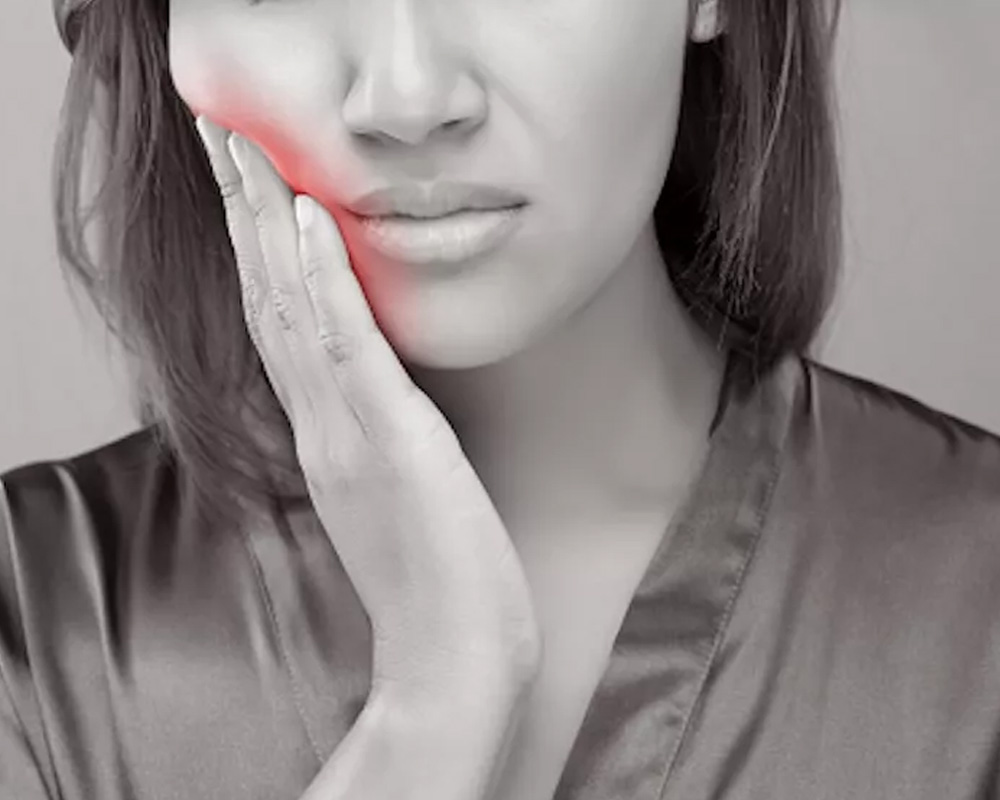
TMJ Jaw Pain Physio
TMJ or Temporomandibular Joint, is the joint that connects your jawbone to your skull. It enables essential functions such as chewing, speaking, and yawning. However, TMJ disorders can occur when this joint becomes affected by various factors. At Our Clinic, we are well-versed in the different types of TMJ disorders and provide targeted treatment options for each one.
Causes and Symptoms of Jaw Pain
Jaw pain can stem from several causes, and it’s crucial to identify the underlying factors to determine the most effective treatment plan. Some common causes of jaw pain include:
- Jaw Injury: Accidents, sports-related incidents, or direct trauma to the jaw can lead to acute or chronic jaw pain.
- Bruxism: Bruxism refers to the habit of teeth grinding or clenching, which can exert excessive strain on the jaw joint and result in pain and discomfort.
- Malocclusion: Misalignment of the teeth and bite can contribute to jaw pain and TMJ disorders. We provide targeted physiotherapy techniques to address the muscular imbalances associated with malocclusion and promote proper jaw alignment.
- Stress and Muscle Tension: Chronic stress can cause muscle tension in the jaw and surrounding areas, leading to pain and discomfort.
The symptoms associated with TMJ disorders may vary from person to person. Common signs and symptoms include:
- Jaw pain or tenderness
- Clicking or popping sounds when opening or closing the mouth
- Limited range of jaw movement
- Headaches and earaches
- Facial pain or fatigue

TMJ Jaw Pain Physio
Braybrook Physio is dedicated to offering a holistic and patient-centric approach to physiotherapy treatment for TMJs, aiming to effectively relieve and rehabilitate TMJ disorders. We prioritise your well-being and tailor our services to ensure the best possible outcomes for your TMJ condition. During your visit, our team will conduct a thorough assessment of your jaw and neck, evaluating the range of movement, muscles, and joints to develop a customised treatment plan tailored to your specific needs. Our comprehensive approach to TMJ physiotherapy includes:
- Jaw Muscle Release Techniques: Our physiotherapists utilise external or internal jaw releases to relax the jaw muscles. They will teach you how to perform these techniques on your own, empowering you to manage your symptoms effectively.
- Hands-On Treatment: Through targeted hands-on techniques, we focus on the muscles and joints surrounding your neck, jaw, and head. This approach promotes relaxation and alleviates tension, helping to improve your jaw function.
- Resting Jaw and Neck Positions: We will teach you comfortable resting positions for your jaw and neck, reducing strain and promoting proper alignment. These positions can enhance your overall jaw comfort and function.
- Jaw Muscle Retraining and Strengthening: Personalised exercises will be prescribed to retrain and strengthen your jaw muscles. By improving their function and reducing discomfort, these exercises contribute to long-term relief and improved jaw mobility.
- Chewing and Eating Advice: Our physiotherapists will provide valuable guidance on chewing and eating habits. They may recommend avoiding chewing gum and opting for softer food choices and smaller bites to minimise strain on the jaw.
- Breathing Exercises: Breathing exercises can help relieve tension in the neck muscles, which may contribute to excessive jaw tension. These exercises promote relaxation and facilitate better jaw function.
- Stress Management Strategies: Stress can worsen TMJ symptoms. Our physiotherapists will offer effective strategies to manage stress, including relaxation techniques and mindfulness practices. These techniques can help reduce tension in the jaw area.
- Mouthguard or Splint Recommendation: If teeth grinding or clenching is a contributing factor to your TMJ issues, our physiotherapists may suggest using a mouthguard or splint. These devices help reduce stress on the TMJ and provide relief.
In addition to these specific treatments, our physiotherapy approach may incorporate jaw mobilisations and modalities like ultrasound, heat therapy, and electrical stimulation. These modalities are used to reduce pain, inflammation, and promote healing in the TMJ area. Furthermore, we provide education on TMJ disorder management to empower you with the knowledge and tools for ongoing symptom management.

Take the first step towards pain relief and improved muscle function.
Need treatment or advice? Don’t wait—Book your appointment today!
